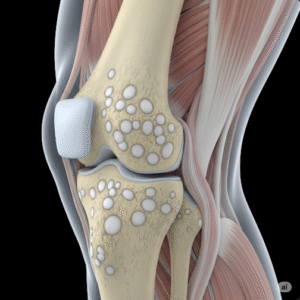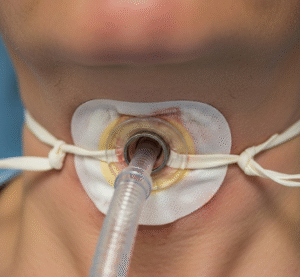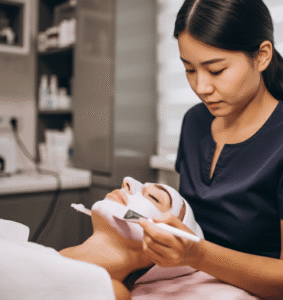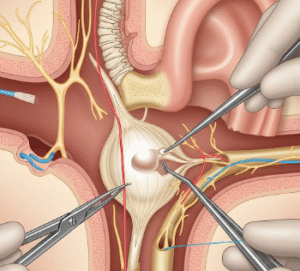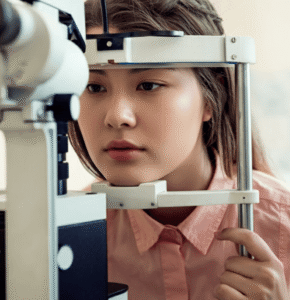As digital health, AI diagnostics, wearable devices, and telemedicine expand, the country faces the challenge of balancing medical innovation with strict data protection. The coming years will bring major legal, ethical, and technological changes that shape how Korea manages personal health information.
🔐 Current Legal Framework and Reforms
The Personal Information Protection Act (PIPA) is the cornerstone of Korea’s privacy laws. Health data is classified as sensitive personal information, meaning it requires special safeguards such as separate consent, encryption, and limited access.
In recent years, the government has strengthened this law to include:
➡️ Faster data breach notifications — organizations must alert authorities within 72 hours of a serious breach.
➡️ Broader extraterritorial scope, applying PIPA to foreign companies offering services to Koreans.
➡️ Clearer rules for data controllers and processors regarding how data is stored, transferred, and anonymized.
In addition, the Digital Medical Products Act (DMPA) will come into force in 2025, creating a framework for digital medical devices and software-based health technologies. Meanwhile, the AI Framework Act, expected in 2026, will add new standards for fairness, transparency, and safety in AI systems — including those that process patient data.
These new laws show that Korea wants to become a world leader in digital healthcare while ensuring strong personal data protection.
🔍 Key Trends Shaping the Future

1. Pseudonymized and Anonymized Data for Research
To promote innovation without risking privacy, Korea is encouraging the use of pseudonymized and anonymized data. This allows researchers to analyze medical information for public health and scientific purposes without identifying individuals. Hospitals and startups can use this data for AI model training, disease prediction, and digital therapeutics — but they must follow strict rules to ensure that individuals cannot be re-identified.
2. Patient Control and the “MyData” Initiative
The MyData system gives individuals direct control over how their health data is used. Patients can request copies of their data, move it between institutions, or revoke consent at any time. This empowers people to take an active role in their health management and gives them confidence that their data belongs to them.
Patients also have the right to object to automated decision-making, such as AI-generated risk assessments or medical recommendations, ensuring transparency and fairness in algorithmic healthcare.
3. Stronger Oversight by the Privacy Commission
The Personal Information Protection Commission (PIPC), Korea’s national data authority, is gaining more power to enforce compliance. The commission can conduct on-site audits, issue fines, and demand public disclosure for serious violations. In coming years, hospitals, insurers, and health tech startups can expect more frequent inspections and higher penalties for noncompliance.
4. Standardization and Interoperability of Health Data
Korea is standardizing data formats and terminology across hospitals through a national Health Data Standardization Project. This will make it easier to share information securely and improve patient care coordination. However, as systems become interconnected, hospitals must also upgrade cybersecurity, encryption, and user access controls to prevent unauthorized data exposure.
5. Cross-Border Data Transfer Rules
As Korean healthcare companies collaborate internationally, cross-border data transfers are becoming common. Under new rules, organizations must clearly state why data is sent abroad, where it’s stored, and how it’s protected. Patients must be informed whenever their information is transferred outside Korea.
Foreign companies that handle Korean users’ health data must also comply with Korean privacy laws — a sign that Korea is tightening global standards for data protection.
6. Public–Private Bio-Data Platforms
The government and private sector are exploring the creation of integrated bio-data platforms, linking clinical records, wearable data, and genomic information. These platforms will help power precision medicine, preventive care, and AI diagnostics. However, they also raise important questions about consent management, data ownership, and ethical use.
7. AI Transparency and Accountability
AI is transforming healthcare in Korea — from diagnostic imaging to drug discovery. But as AI models handle sensitive data, explainability and fairness become essential. The upcoming AI Framework Act will likely require:
➡️ Algorithms to be auditable and transparent.
➡️ Patients to be informed when AI is involved in decision-making.
➡️ Clear accountability when automated systems make clinical recommendations.
Hospitals and startups will need to build AI solutions that are not only accurate but also trustworthy and compliant with privacy standards.
💡 What Hospitals, Clinics, and Startups Should Do
➡️ Adopt Privacy by Design — build secure systems from the start with encryption, limited access, and consent tracking.
➡️ Use De-identification Techniques — when using data for research or AI, remove or pseudonymize identifiable details.
➡️ Offer Transparent Consent Options — give patients easy control over what data they share and for what purpose.
➡️ Audit AI Systems — regularly check algorithms for fairness, accuracy, and data security.
➡️ Comply with Cross-Border Requirements — disclose where data is stored, ensure proper safeguards, and include these details in privacy policies.
➡️ Train Staff and Clinicians — privacy protection isn’t just a technical issue; it requires awareness and consistent practice across departments.
➡️ Engage Patients — educate them about data use, benefits, and protections to strengthen trust.
🌿 Final Thoughts
The future of health data privacy in Korea will depend on how well innovation and protection can coexist. The country is setting a global example by building an ecosystem where technology and ethics move hand in hand.
With PIPA strengthening compliance, new laws for digital medical products, and the upcoming AI framework, Korea is shaping a health system that values both progress and personal dignity.


